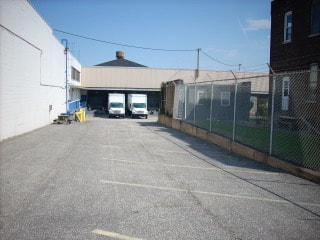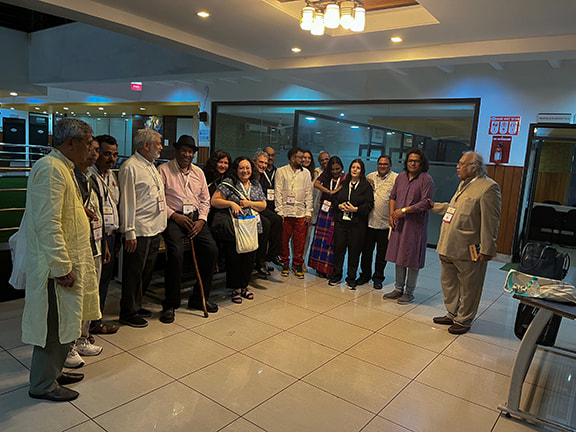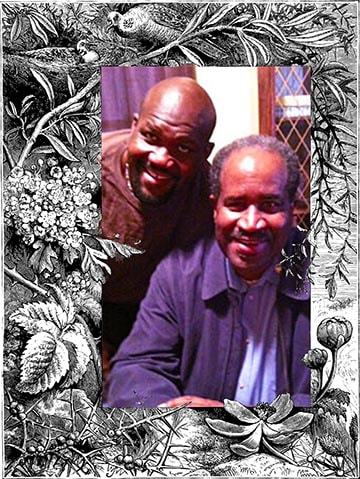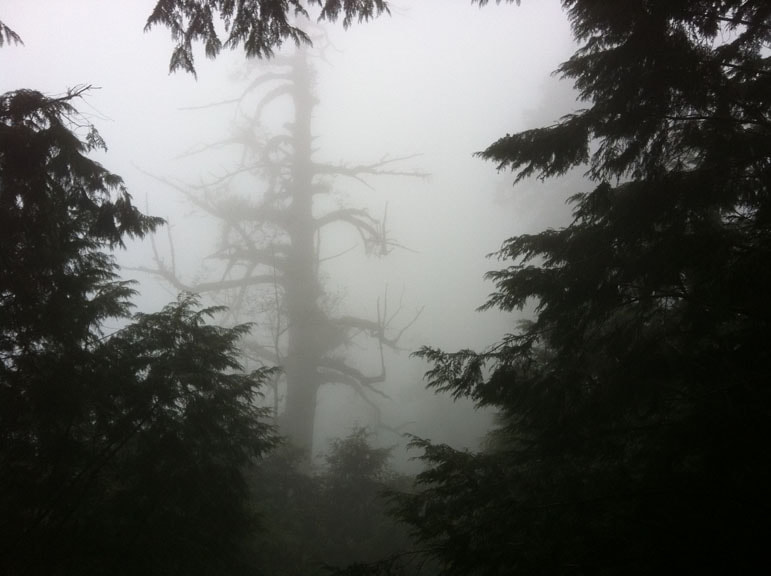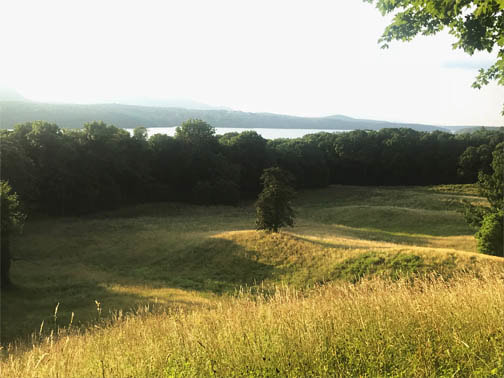|
As I continue to pick away at a memoir for twenty five years and counting, it has occurred to me that I should share some of what I’m trying to write about, so Dear Reader, thank you for signing into my blog again. I hope you enjoy this entry. I Took the Test. Stairs to the sacred grounds. Stairs to the sacred grounds. It was a test I had resisted as much as I could, until the cardiologist in charge of the team leaned over to me and softly said, “This is the best I can do for you. Trust me. If you take this test, I’m relatively sure I will be able to find a surgical solution to your problem.” The test was the catheterization, a procedure involving a slight incision made in the right coronary artery, slight but ever so serious. Afterward I would have to remain in bed as much as I possibly could so that I did not cause the incision to break. In a matter of minutes, I would bleed out and begin to enter the world of my ancestors. In fact, my mother, who had been in that world for thirteen years, appeared to me in a dream and explained that I could come home if I wanted to, that it was easy. Behind her stood a row of relatives who had all crossed over, or “made their transition,” as folk say these days. When I took the test, it was in a tech room at University of Pennsylvania Hospital in West Philly, where I lived in a third floor apartment I called The Treehouse. My third marriage was ending, and although I had just received tenure with distinction at Rutgers University, I felt empty, as if I had done much in life for someone who was forty three years old. My Life Had Fallen Apart As a child, I discovered life through books. As a child, I discovered life through books. It was not supposed to be this way, according to my plans. My life had fallen apart a few times before, and the most difficult I thought was the tragic ending of my first marriage, where we lost our first son to Down’s Syndrome, and although we had a healthy second son, we were not strong enough to bear the grief that came when my PTSD manifested and I collapsed under the weight of my own machinations. It was at that time, struggling under the broken pieces of my dreams, that a coworker gave me a copy of the Tao Te Ching translated by Gia Fu Feng, with photographs by his wife, Jane English. It was a door to Tai Chi Chuan, and thought I had found a way to being at peace with myself, and accomplishing my dream of becoming a great poet. How foolish, how incredibly joyful and full of dreams. At the suggestion of the principal of my junior high school, my parents placed me in an accelerated program that landed me in the University of Maryland, College Park in the fall of 1968, when I was sixteen years old. After two years, I dropped out to be a factory worker and study my craft as a poet, and in three more years that coworker, whose name was John, handed me that copy of the Tao Te Ching. As a child, I had learned to discover life through books, and books led me to Tai Chi Chuan by Douglass Lee, a book I consider a classic from that time when that generation of us seekers found our way to this mysterious slow motion martial art. My Heart Was Failing. The Prognosis Was Grim, but I Found |
| If you are wondering about what happens to African American urban cowboys, I can tell you it’s hard to find work herding cattle in Baltimore. When I decided to make my central work the business of developing the poet inside me, It made work more difficult because my tendency to think creatively was not a part of the job descriptions I found. So thinking creatively made a space inside me whether I was cutting lawns, operating machinery, cleaning floors, or teaching. The work which seemed most suited to thinking creatively, which is to say, thinking about writing, mostly writing poetry, was the work of tending horses. I was thirteen when I was introduced to the world of horses. I fed and cleaned them. I walked them. I sat on the edge of hills and watched them. I even had one of my own for a short time, a gift from my uncle, a man who owned a small horse farm outside Baltimore beginning in the mid-sixties. I am retired from my last extended stint in the formal world of work, which was thirty years of teaching. Before that I spent fifteen years as a laborer in factories in Baltimore. It was easier to think of writing while doing physical work. When thinking of writing while teaching, I had to surrender to the business at hand, teaching other people about literature and how to write it. The Elephants Teach is a great book about the challenges of being a creative writer while teaching in colleges and universities. My work is to write, and having spent most of my life doing other things to support my writing, I am finding other ways to fill that space of work that supports my writing. I find myself coming back to horses. I go riding when I can, and I am thinking seriously now of saving for a saddle. First, you buy the saddle, and then the horse. Of all the things I’ve done to support my writing, the factory work is the most deeply engraved set of memories I have. In my recent book, Spirit Boxing, I returned to that world where I studied the art of writing and living as a poet. That all happened in Baltimore, and now I am trying to write about that city where I was born, B’more. Baltimore Rising Other than watching westerns as a little black boy in Baltimore in the fifties and sixties, there were horse drawn wagons that came through the alleys with African American men leading them, the “Arabbers.” Arabbing began after the Civil War in several cities, and now they are only found in Baltimore. In the thick of summer my mother would bring water to these men selling top soil, fruit and vegetables, while singing out the contents of their wagons. Baltimore is known for its working class history and culture, and while that is certainly not all there is to the city, it is the root of my experience and than of many African Americans. There is much to write about when it comes to Baltimore, a city founded by a man from Ireland. African Americans comprise well over half the population now, and as a child in the city’s southern style of segregation, I thought the whole world was black. But Baltimore is a city of many different kinds of people, and it has a rich history, even as now it struggles with the loss of the manufacturing jobs that was the city’s mainstay. I am sixty-six years old now, and I lived in Baltimore until I was thirty-three. The world of physical labor I did is mostly gone, and I don’t think it will return. The capitalist economic system in which we live is now in crisis. When I began working in factories in the late sixties, it was time of the end of the Golden Age of Capitalism. Writing about Baltimore, I think long and hard about how essential black people have been to the building of this national culture, how much of that history is about our dehumanization and continual abuse, and it means embracing the fact of all the other racial and ethnic histories that are tied to Baltimore. Baltimore was and is first Native American. Baltimore is Irish. Baltimore is Italian, Polish, German, Russian and more. Baltimore is Jewish, Muslim, Christian, Buddhist and more. Baltimore is, is is… During the Civil War, it was the apple of the Confederate eye, an apple’s eye the South lost when the Union took over the city as southern sympathy was so large Maryland stood to become the Confederate state above Washington like a surreal wreath pressing Washington against Richmond. So I got a lot to do. B’more is one of the templates for these United States of being. What do I do when I got a lot to do? I think about horses…and magic. The Magic of Horses Read Obsidian Magazine Working with horses and being in that world on weekends and summers while in junior and senior high school made my imagination a real world inside me. It helped me own the magic of poetry. Sometimes now when my partner Kristen and I are driving along I’ll say, “Just think about what it would be like to go into the Hudson Valley on horseback, two saddle horses and a pack horse.” Or I’ll joke and say, “We gotta get this herd of cattle down to Kansas by the end of the month. Gotta take good care of these horses and the one good dog we have.” You have to have a good dog, one that will guard and guide those cattle against all odds. It’s sorta that way with what you love to do and how you take care of the space, energy, and tools you need to do it. What do you love to do? Write? Build things? Cook? I went to school for cooking, but that’s another blog. This is my first one for Magic Horses. Visit my partner Kristen’s blog. She loves horses, too, of course, and she’s got some words for you. A Cowboy Poet’s Opinions As the Year of the Dog Approaches Lastly—I vote for decency and moral standards to be upheld by everyone. A man who grabs women should not be the president. No political party should advocate or support the idea of racial dominance by any race. In no way least, toward loving-kindness—“If more politicians knew poetry, and more poets knew politics, I am convinced the world would be a better place.” JFK. Really JFK? I dunno about that. On the other hand, I just gave my opinion, from me and the horse I rode in on in this first month of 2018, the western New Year. The Year of the Dog is coming. Maybe it’s a nice doggy, or a corrective one. Who’s holding the leash, I wonder? Finally, please don’t forget to laugh as often as you can… © Copyright 2018, Afaa M. Weaver The contents of this blog are for educational purposes only. | Archives |
Author
Magic Horses' director and founder, Afaa Weaver, is an award-winning poet, playwright, and translator. His latest book of poetry, "Spirit Boxing" was just released from the University of Pittsburgh Press.
Archives
March 2025
July 2024
July 2022
March 2021
August 2019
September 2018
June 2018
March 2018

